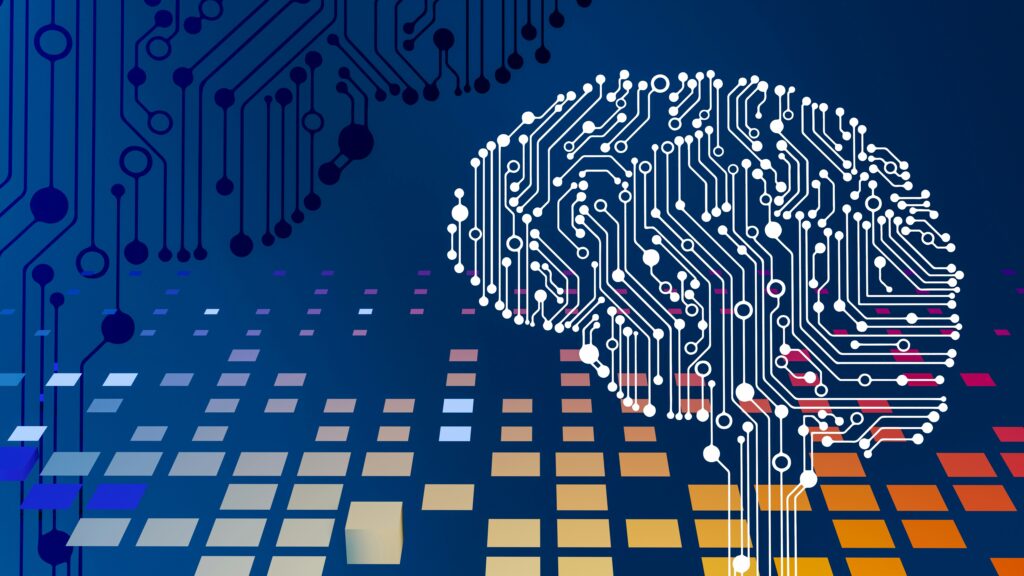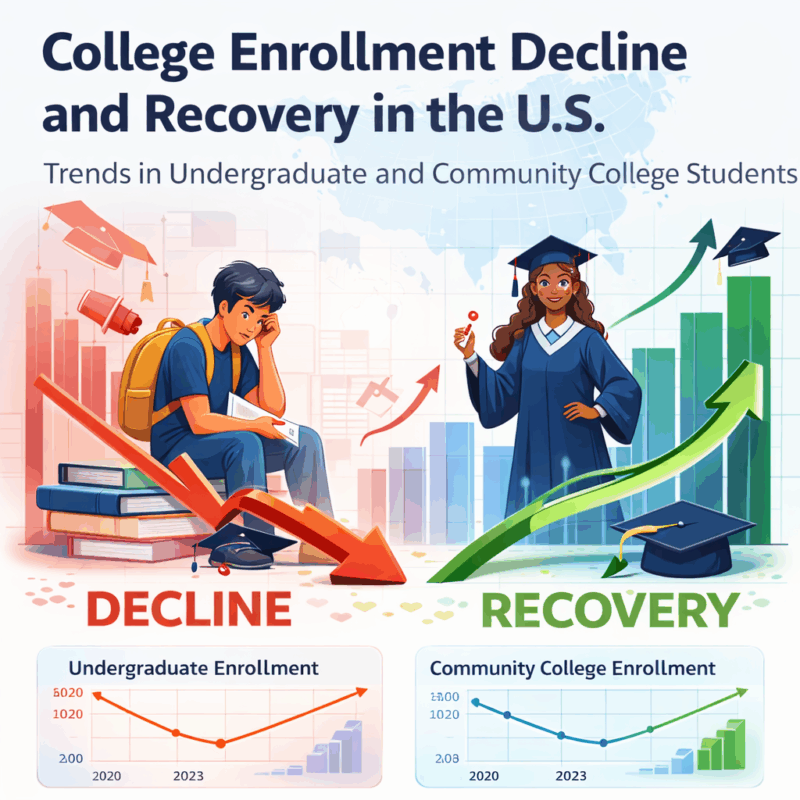Introduction
Generation Z, born between 1997 to 2012, is the first generation to take artificial intelligence to a new level of collaboration by using it as a cognitive assistant to be more productive and change the work paradigm. This generation is tech-native, and they are both excited by the prospect of efficiency and anxious about the displacement of their jobs, which is an interesting combination acknowledging the two-sided potential of AI (Robinson, 2025). Their model shifts away from automation to more symbiotic workflows where AI performs menial work and humans do creative and strategic work. The digital nativity of this generation places them in a unique position to move beyond the complexities of AI with a fluency that has never been seen before and convert workspaces into human-machine synergy laboratories. A combination of AI tools and human decisions-making can enable Gen Z to create a new framework of productivity that streamlines the process of work, enhances cognitive abilities, and requires deliberate skill building to avoid overdependence.
Adoption and Usage Patterns
A high frequency and broad scope of applications characterize Gen Z’s use of artificial intelligence at work. Although companies are still working through how best to integrate AI into their official systems, most knowledge workers of all generations have already adopted the use of their own AI tools on the job. Across the four generations, the number of employees utilizing their own AI tools in the workplace is between 73% and 85%. Not surprisingly, the generation with the highest proportion of workers supplying their own AI tools in the workplace is Gen Z with 85% (Zhu, 2024).
While the majority of Gen Z workers are seeking to use AI to increase productivity legally through brainstorming and writing, it turns out that quite a number of them are utilizing it to save time and cut corners. Some of these tools such as chatGPT, Grammarly, and Otter.ai help users to carry out tasks such as drafting emails, recording meetings, and even assisting in carrying out computer programming. 74% of users apply AI to brainstorming or creative idea generation, 68% to writing or editing reports and emails, and 62% to developing digital content or presentations (Chan, 2025).
It is also possible to note an extreme gender gap where 71% of Gen Z men find themselves using AI to prioritize their activities, whereas only 48% of female respondents do the same (Bregel, 2025). The same disparity can be applied to the field of ethics, in which males tend to utilize AI applications in the absence of corporate approval 40% more than their female counterparts (Deloitte, 2025). Also, there is a significant sectoral variation, as it is mostly people in the technology and marketing fields that have had the largest adoption scores, whereas the healthcare sector is brought down by regulatory limits. Thus, Gen Z engagement with AI is as cognitive as it is administrative and is transforming the ordeals of work by means of personalization of digital collaboration.
Productivity and Efficiency Gains
The productivity of organizations in the modern day is significantly boosted by the use of AI. Gen Z respondents in a study stated that they have decreased their workload by up to half by prioritizing the intelligent implementation of automation (Agarwal, 2025). Additionally, most Gen Zs who use AI expect to save a considerable amount of time per day, with the key focus on the automation of routine functions like scheduling and data processing. These efficiencies can be measured, as time spent coding decreases when using GitHub Copilot, and projects can be completed up to two times faster when using AI assistants. Furthermore, AI users state that they improve their work-life balance by delegating administrative duties to AI-based schedulers. Therefore, AI is a force multiplier that frees up human effort to be spent on innovations of greater value and strategic thinking.
Skill Enhancement and Development
Contrary to the fears of becoming deskilled, 60% of Gen Z express that artificial intelligence (AI) enhances their abilities, particularly in technical fields, including coding and data analysis (TalentLMS, 2024). Educational services such as LinkedIn Learning are now offering AI coaching features with simulations of client negotiations, thus allowing students to improve their emotional intelligence through real-time feedback. However, some Gen Zs have admitted that overrelying on such tools may lead to the depletion of essential learning experiences, such as critical evaluation and troubleshooting. This is referred to as the skills paradox, a situation where technical skills increase and problem-solving stamina decreases. In such circumstances, AI can be used as an individual upskilled learning coach that can speed up professional growth when moderated by intentional cognitive tasks.
| Skill Impact | Improvement Rate | Degradation Risk |
| Technical/Coding | 65% | 28% |
| Data Analysis | 61% | 31% |
| Creative Ideation | 57% | 12% |
| Critical Thinking | 22% | 49% |
Table 1: The AI Skills Paradox in Gen Z
Workplace Transformation and Human-AI Collaboration
Gen Z does not view artificial intelligence (AI) as a tool, but rather as a teammate that can facilitate their decision-making process, as 59% of Gen Z respondents stated that AI can improve their decision-making ability (TalentLMS, 2024). Similarly, Sundar Pichai says that “by 2024, AI will power 60% of personal device interactions, with Gen Z adopting AI agents as their preferred method of interaction” (Sabzwari, 2025). As a result, Gen Z is becoming more engaged with AI agents, who are becoming their favored interface. The introduction of the so-called “superagency system”, where humans control teams of AI agents, has produced a 47% performance boost in consulting and R&D settings (Mayer et al., 2025). Engineers at IBM are using AI agents to simulate product-testing loops, which cut the required time investment considerably (Alex, 2024). Therefore, all these developments illustrate that Gen Z is making human-AI collaboration a norm in operation that changes organizational hierarchy.
Critical Gaps and Challenges
There are still significant challenges to face in spite of the enthusiasm around AI. Research conducted in 2025 shows that 49% of those surveyed think AI has the potential to undermine critical thinking, and 23% experience the negative mental health consequences of AI-related stress (Lee, 2025). Workplace guidance leaves much to be desired: 55% of participants said they have no well-defined AI policies, and 47% said that AI tools give them more guidance than managers (Milojevic, 2024).
According to a survey conducted by the Harvard Business Review in 2025, there was a trade-off in work performed with the help of AI. On the one hand, generative AI increased productivity and the quality of task performance by 30% and decreased the level of boredom by 20%; on the other hand, generative AI reduced intrinsic motivation by 11% when people returned to working with no AI assistance (Liu et al., 2025). A 2024 study by MIT Media Lab researchers showed that actively using generative AI such as ChatGPT resulted in decreased brain activity in areas linked to critical thinking and executive functioning that indicates an increasing dependence on AI that may result in cognitive decoupling (Chow, 2025). Also, timely literacy, or the ability to develop useful inputs for AI systems, has become another major skill deficit, as educational researchers have observed that the vast majority of students and young professionals have not received any formal preparation on this topic. Therefore, it is up to organizations to fix these gaps in guidance by establishing organized frameworks that help them prevent skill atrophy and ensure that individuals can think independently.
The use of AI by Gen Z is filled with trust issues. Approximately 41% of Gen Z have more trust in AI than humans, despite research indicating that ChatGPT has error rates of more than 50% in code and legal analysis (Robinson, 2025). Employees do not know when they receive inaccurate information, which leads to risks of miscommunication and, in some cases, irreversible losses. These fears were realized in a marketing company in London, where uncontrolled AI content creation led to a 73% loss of customers because of errors in facts (Agarwal, 2025). Furthermore, most of Gen Z ignore data privacy procedures when working with customers. Thus, responsible deployment necessitates ethical frameworks involving human validation gates and transparency logs.
Conclusion
Gen Z’s combination of human creativity with the productivity of AI is a paradigm shift in the work ethic which turns anxiety into empowerment by using tools that enhance rather than substitute human capabilities. Their strategy requires organizational backing (having strong policies, soft skills training, and ethical regulations) to enjoy the benefits and reduce risks. Firms that reach the stage of superagency equilibrium, in which humans manage AI teams, will realize more profits in productivity by 2030. The most effective implementations, such as the Unilever Gen Z-driven AI taskforce, are increasing innovation output by 57% and decreasing burnout. After all, the fact that this generation is eager to explore AI as a team player is an indication of a wider shift. Labor will increasingly value distinctly human skills, such as moral decision-making and creative synthesis. Thus, the future will be dominated by the organizations that prioritize symbiotic human-AI workflows, making productivity a meaningful innovation.
References
Agarwal, S. (2025, February 11). 93% of Gen Zers use AI at work — and it’s giving them a huge advantage. Business Insider Africa. https://africa.businessinsider.com/careers/93-of-gen-zers-use-ai-at-work-and-its-giving-them-a-huge-advantage/8zy2k1z
Alex. (2024, September 19). Role of AI and Machine Learning in IBM’s Product Development. GoTechCareer | Advice to Get Hired in Tech Industry. https://gotechcareer.com/role-of-ai-and-machine-learning-in-ibm-s-product-development/?utm_source=chatgpt.com
Bregel, S. (2025, June 24). 40% of Gen Z men are using AI to cheat at work. Fast Company. https://www.fastcompany.com/91356839/40-perecen-of-gen-z-men-are-using-ai-to-cheat-at-work
Chan, E. (2025, June 19). 2025 Gen Z and AI in the Workplace Report – Resume Genius. Resume Genius. https://resumegenius.com/blog/career-advice/gen-z-and-ai
Chow, A. R. (2025, June 17). ChatGPT May Be Eroding Critical Thinking Skills, According to a New MIT Study. TIME; Time. https://time.com/7295195/ai-chatgpt-google-learning-school/?utm_source=chatgpt.com
Deloitte. (2024, November 19). Deloitte Global’s 2025 Predictions Report: Generative AI: Paving the Way for a transformative future in Technology, Media, and Telecommunications. Deloitte. https://www.deloitte.com/global/en/about/press-room/deloitte-globals-2025-predictions-report.html
Lee, D. (2025, April 8). Gen Z Is Using AI — But Reports Gaps in School and Workplace Support. Walton Family Foundation. https://www.waltonfamilyfoundation.org/about-us/newsroom/gen-z-is-using-ai-but-reports-gaps-in-school-and-workplace-support
Liu, Y., Wu, S., Ruan, M., Chen, S., & Xie, X.-Y. (2025, May 13). Research: Gen AI Makes People More Productive—and Less Motivated. Harvard Business Review. https://hbr.org/2025/05/research-gen-ai-makes-people-more-productive-and-less-motivated
Mayer, H., Yee, L., Chui, M., & Roberts, R. (2025, January 28). Superagency in the workplace: Empowering people to unlock AI’s full potential. McKinsey & Company. https://www.mckinsey.com/capabilities/mckinsey-digital/our-insights/superagency-in-the-workplace-empowering-people-to-unlock-ais-full-potential-at-work
Milojevic, N. (2024, August 19). Gen Z in the Workforce: 2024 Statistics. Empowered Team | CAKE.com. https://cake.com/empowered-team/gen-z-workforce-statistics/
Robinson, B. (2025, February 19). Gen Z Trust AI More Than Humans In Their Careers, New Study Shows. Forbes. https://www.forbes.com/sites/bryanrobinson/2025/02/19/gen-z-trust-ai-over-humans-in-their-careers-new-study-shows/
Sabzwari, N. (2025, January 4). AI Agents: Shaping the Future of Intelligence – BlockApex. BlockApex. https://blockapex.io/ai-agents/
TalentLMS. (2024, August 26). TalentLMS. TalentLMS. https://www.talentlms.com/research/ai-impact-gen-z-work-skills
Zhu, K. (2024, December 8). Charted: AI Usage At Work, by Generation. Visual Capitalist. https://www.visualcapitalist.com/charted-ai-usage-at-work-across-generations/








